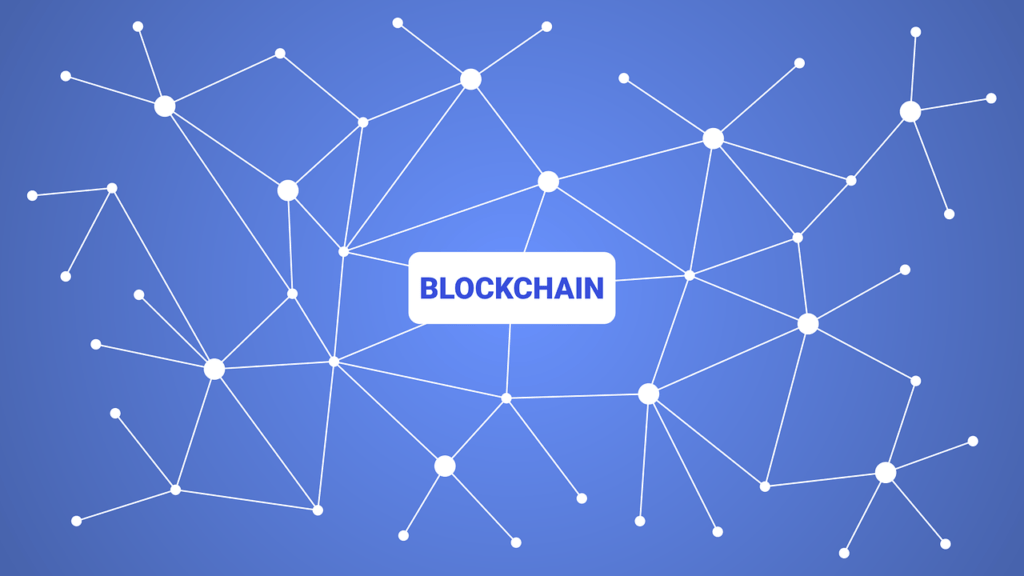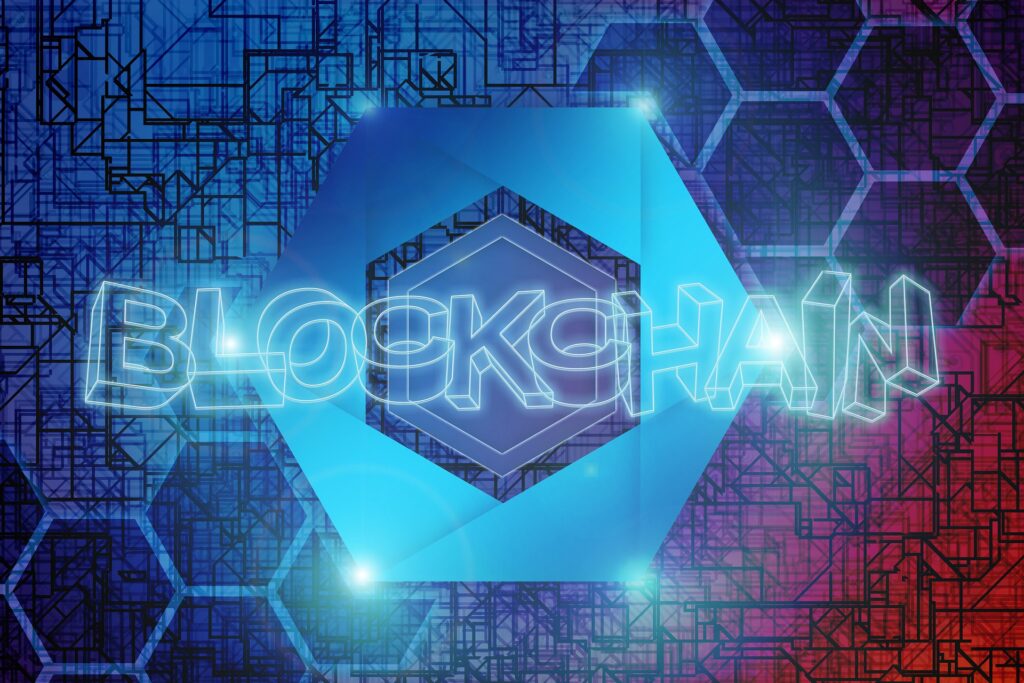If you follow the gaming industry or the financial market, you might have already heard about blockchain. Almost every time people talk about this new technology they talk about its possibility of making a profit for players. However, blockchain games bring many other possibilities beyond that and promise to revolutionize the industry. How about we explore this revolution a little more?
Since their invention more than half a century ago, electronic games have been one of the most popular forms of entertainment around the world. In recent years, a new technology has become increasingly popular in the gaming world: blockchain.
Blockchain, the technology behind cryptocurrencies like Bitcoin, allows games to be built in a decentralized way, offering advantages in terms of security, transparency and ownership of digital assets. These perks benefit both gamers and developers alike and are bound to become more and more popular in the industry.
But then again, what is blockchain?

Blockchain is a distributed and immutable ledger technology that allows information to be stored on a decentralized network of computers. Instead of having a single centralized server that holds all the information, blockchain allows it to be shared and validated by all network users.
It is made up of “blocks” of information, each containing a record of transactions. Each block is validated by network users’ computers and once validated, it’s added to the existing blockchain.
These validations occur as users mine in the network, and as they receive rewards for doing so, there is no danger of a lack of users. Furthermore, as each block contains encrypted information referring to the previous block, the blockchain is immune to alteration and fraud.
Blockchain was developed in 2008 in conjunction with the creation of the Bitcoin cryptocurrency, but its applications go far beyond digital currencies. The technology can be used to create a variety of decentralized applications, including video games, giving them many unique advantages.
Read more about blockchain:
And what are blockchain games?

Realizing these new possibilities, several developers began to work with this technology, looking for new possibilities for gameplay and fun, not just the profit like many may think. And what are blockchain games? Examples like the MMORPG Mir4, the battle royale Light Nite, and the collectible card game Gods Unchained are some of those that have already embraced blockchain, and it shows just how diverse they are.
Blockchain games allow players to have real ownership of digital items within the game. In traditional online games, without the blockchain, players can buy items in the game, but these items are owned by the company that created it, being on its servers, and can disappear anytime the company decides, makes a mistake, or closes the servers. In addition, the company decides what the player can do with such items, limiting their actions.
In blockchain games, on the other hand, items are stored in a network block, in a decentralized way, and thus become the player’s total property, allowing them to do whatever they want with them, even being able to buy, sell or exchange them without the need for intermediaries.
This gives items a much closer property to the real world, resembling physical objects. Thus, players can feel more satisfaction and immersion when obtaining items, as well as increasing their value. And of course, the possibility of making a real profit while having fun with a game also provides a new incentive.
Furthermore, blockchain allows games to be more secure and transparent. Since the information is stored on a decentralized network, it is nearly impossible for hackers to compromise game security. Other than that, all transactions are stored on the blockchain, which makes it easier for the transaction parties to track down any suspicious activity. This also makes the games more transparent, as all transactions are easily traceable and verifiable.
One concern that might come up for anyone hearing this is the issue of privacy as all transactions are logged. It turns out that they are all registered anonymously, so that only the two sides responsible for a transaction will be able to identify it on the network, ensuring yet another point of advantage for the technology.
Finally, blockchain games can offer greater freedom and flexibility for developers. As the games run on a decentralized network, there is no need for a centralized server to host the game. This means that developers can create more complex and innovative games without worrying about hardware or software limitations, in addition to saving production and server maintenance costs. This can lead to more fun and engaging games for players.
The challenges faced by blockchain games
While blockchain gaming offers many benefits, there are still challenges to overcome before this revolution can take place. One of the biggest obstacles today is the negative view that many players have of this technology, mistakenly believing that it only aims at profit. It is therefore necessary to disseminate correct information about blockchain games and their benefits in order to change public perception.
Furthermore, the more innovative and different games that emerge using this technology, the easier adherence will be. This is because gamers will have many positive examples of blockchain games, which will go a long way in favor of shifting towards a more positive perception.
There are also many challenges regarding the usability of blockchain games. Unfortunately, the technology is still not completely user-friendly, which may scare many players who are thinking of entering this universe. An example is the need for a digital wallet to store digital items, and this creation can be complicated for users not familiar with the technology.
In this same topic, there is the stigma of needing a wallet, as it again refers to the negative notion that everything would be for profit. Other than that, many games do not help to change this perception, as they require a real investment of money to start playing, in addition to advertising too much the possibility of earning money and its relationships with cryptocurrencies. There needs to be a change in communication to focus on other benefits, always looking for fun as the central topic.
Blockchain also faces challenges regarding scalability, which means that the network can become congested with too many transactions. This can lead to slower processing times and higher fees, which can negatively affect users’ experience.
Finally, blockchain games also face many regulatory challenges around the world. Regulators in different countries have different opinions about the legal status of cryptocurrencies and digital goods in general, which can affect the adoption and development of these games.
Sooner or later, revolution will come

Blockchain gaming is a new frontier in the gaming world. As we have seen, this technology allows players to have real ownership of digital assets within the game, offers greater security and transparency and allows developers to create more complex and innovative games.
However, there are still challenges to overcome before blockchain gaming becomes widely adopted. Stigma, usability, scalability and regulation are just some of the challenges that need to be addressed. But as technology evolves and blockchain games become more commonplace, we are likely to see an increase in the number of games utilizing this technology and a significant shift in the way we play and buy games.
The false stigma that blockchain games would have the sole purpose of profiting has alienated many players, delaying the coming of this promised revolution. Even so, there is no lack of passionate developers who believe in the technology and are firmly working with it in search of providing new gameplay experiences that bring fun to players, and, with that, blockchain games continue to evolve, closer and closer to their expected revolution.
As blockchain technology becomes more accessible and understandable to the general public, it is believed that more people will adopt this technology and, in turn, the popularity of blockchain gaming will increase. As more developers start creating games with blockchain technology, we are likely to see an increase in game quality and innovation. That is, everything is interconnected, moving towards its ever-increasing adoption.
In short, the blockchain gaming revolution is just beginning. This technology has the potential to change the way we play and buy electronic games and could lead to new ways of interacting within games. It is exciting to think about what the future holds for blockchain gaming and how this technology could shape the gaming industry in the coming years.
Translation by Laura Bonci






